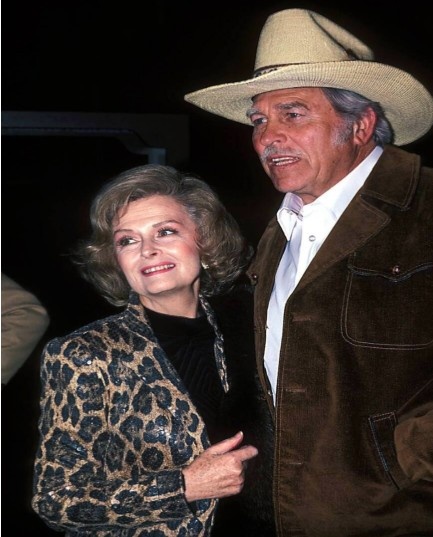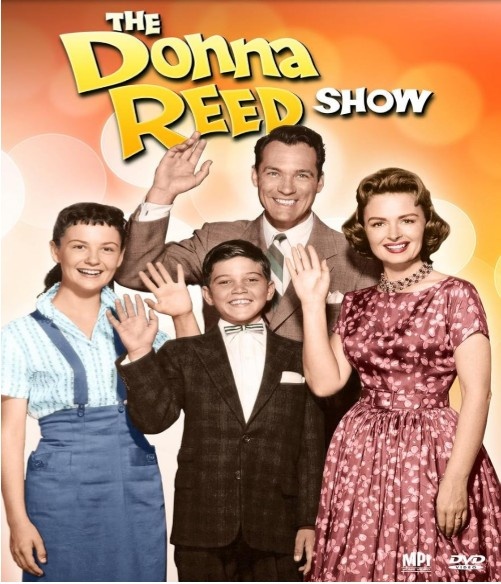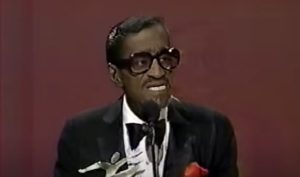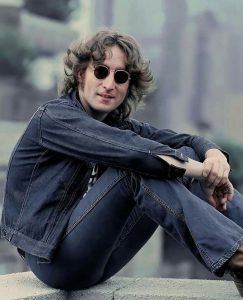I remember the first time I saw Donna Reed’s face—not on It’s a Wonderful Life, oddly enough, but in a grainy black-and-white clip my grandmother had tucked away in a VHS drawer labeled “Keep Forever.” There she was: luminous, poised, with that effortless Midwestern glow that somehow felt warmer than the California sun. Years later, when I came across what is widely believed to be Donna Reed’s last photo, something in me stilled. It wasn’t just nostalgia—it was a quiet kind of mourning for a bygone elegance.
You don’t need to be a die-hard classic film buff to feel the weight of that final image. It’s more than just a photo—it’s a time capsule, a soft farewell from someone who defined a certain era of American television and cinema.

Image Credit- Vintage Show Biz
Donna Reed’s Last Photo: A Final Snapshot of a Legend
The last known photo of Donna Reed is quiet—unlike the high-glamour studio portraits of her heyday. Her face, though aged, carried the same unmistakable calm. The photo isn’t widely circulated, and maybe that’s fitting.
What struck me most wasn’t how much she’d changed, but how much she hadn’t. Even without the makeup, the costume, or the studio lights, Donna Reed looked… like Donna Reed. The smile might have been faint, but it was there. And in that moment, she seemed to whisper to us across time: “It’s okay. You remember me. That’s enough.”
There’s a humility in that final image—a reminder that legacy isn’t about how brightly you shine in the spotlight, but how long you stay in people’s hearts afterward.
What Was the Cause of the Death of Donna Reed?
Donna Reed passed away on January 14, 1986, at the age of 64. The official cause was pancreatic cancer, one of the more silent and aggressive forms of the disease. By the time it was diagnosed, in late 1985, it had already taken its toll.
Reed’s death hit many people like a punch in the gut—not just because she was relatively young, but because she had always carried herself with such vitality. This was the woman who stood her ground as Mary Bailey, who anchored The Donna Reed Show for eight seasons, and who, off-screen, was fiercely intelligent and politically outspoken.
The cancer moved quickly. And though the end came just weeks after her diagnosis, it didn’t erase the dignity with which she had lived—and, by many accounts, faced her final days.
What Was the Big Deal About Donna Reed?

Image Credit- IMdB
If you’ve ever been told to “sit like a lady,” it’s probably because someone watched The Donna Reed Show. But to say she was just the quintessential 1950s housewife is to underestimate her completely.
Donna wasn’t just a symbol of the American ideal—she was an actress with remarkable range. Before Mary Bailey made her immortal, she won an Academy Award for Best Supporting Actress in From Here to Eternity (1953), playing a character far removed from the clean-cut image of domestic grace. That performance was gritty, tragic, and completely unforgettable.
Her cultural impact extends beyond roles. Reed challenged the perception of what women in Hollywood could be: soft-spoken but not passive, maternal but opinionated. In a way, she helped shape how women saw themselves on screen—and perhaps, more quietly, how they were allowed to feel in their own lives.
What Was Donna Reed Doing Before She Died?
Just months before her death, Donna Reed made headlines by stepping into the role of Miss Ellie Ewing on Dallas. Barbara Bel Geddes, the original Ellie, had taken a medical leave, and Reed—ever the professional—came in to fill the role for the 1984–1985 season.
She was reportedly excited to return to the screen, energized even. But when Bel Geddes returned, Reed was abruptly let go. It was more than a career blow—it was a legal battle, a controversy, and a moment that highlighted the harsh realities of aging in Hollywood, especially for women.
Even then, Reed kept her head high. She fought back legally, sued for breach of contract, and settled out of court. There was something symbolic in that act—not just defending her career, but her dignity. That brief chapter, tucked between elegance and illness, is one many fans remember with a mixture of frustration and admiration.
How Old Was Donna Reed When She Died?
Donna Reed was 64 years old when she passed away. In today’s terms, that feels startlingly young. Perhaps that’s why her death still stings. We tend to imagine classic film stars as frozen in time—forever young, forever glowing in celluloid light.
But Donna aged like the rest of us. Gracefully, with that same calm assurance she brought to every role. In interviews and public appearances leading up to her death, she never lost that composed demeanor. There’s something hauntingly tender about realizing someone who embodied permanence is, in fact, as fragile as the rest of us.
She lived through—and helped define—eras of cinematic and cultural change. By 64, she had done more than most ever do: Oscars, TV shows, political activism, and raising a family. Still, we can’t help but wish we had a little more time with her.
A Lasting Impression of a Legend
Donna Reed didn’t just play icons—she became one. She wasn’t the loudest, or the flashiest, or the most scandalous. But she stayed with us, quietly weaving herself into the fabric of American memory.
If you haven’t rewatched It’s a Wonderful Life lately, let this be your invitation. Or dig up an old episode of The Donna Reed Show. Watch how she moves, how she listens, how she makes space for others. That’s where her magic lies—not in towering over the scene, but in grounding it.
And maybe that’s what her final photo reminds us of most: That sometimes, the people who change us the most are the ones who speak softly, smile gently, and leave with grace.
FAQ: Remembering Donna Reed
1. What was Donna Reed’s real name?
Her birth name was Donna Belle Mullenger. Born in Denison, Iowa, she changed her name as she transitioned into acting—though the wholesome charm of her Midwest roots never left her.
2. Was Donna Reed involved in activism?
Yes, she was surprisingly politically active. Reed co-founded “Another Mother for Peace,” a group opposed to the Vietnam War. She wasn’t afraid to stand up for what she believed in—both as a mother and as a public figure.
3. Did Donna Reed really enjoy playing housewife roles?
Not always. While she appreciated the opportunity, Reed often voiced her concerns that The Donna Reed Show was a bit too idealized. Still, she made the role her own—giving it a quiet complexity that elevated it.
4. Where is Donna Reed buried?
She is buried in Westwood Village Memorial Park Cemetery in Los Angeles, among many other Hollywood greats. It’s a fitting resting place for someone who left such an indelible mark on the silver screen.
Conclusion: A Farewell to Grace and Legacy
Donna Reed’s last photo is not just an image; it’s a quiet homage to a woman who shaped both Hollywood and American culture with her grace, poise, and quiet strength. In the simplicity of that final image, we see a woman who remained true to herself—unwavering, dignified, and ever-present in the hearts of those who loved her. She may have been known for playing idealized characters, but in reality, Donna Reed was far more complex, embodying resilience, grace, and an unwavering sense of self.
As we reflect on her legacy, it’s clear that Donna Reed’s influence extended far beyond the screen. From her powerful performances in From Here to Eternity to her groundbreaking activism, she defied expectations and carved out a place for herself in both the hearts of her fans and the history books. Though she passed away too young, her legacy continues to resonate, not through loud declarations, but through the subtle, enduring impact she had on both her industry and society.
So, the next time you watch It’s a Wonderful Life or The Donna Reed Show, take a moment to remember that the woman behind the roles was just as remarkable off-screen. Donna Reed was, and remains, a symbol of elegance and integrity, and her final photo serves as a timeless reminder that some legends never fade—they quietly endure, framed in grace.








